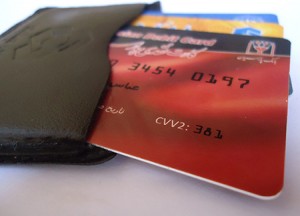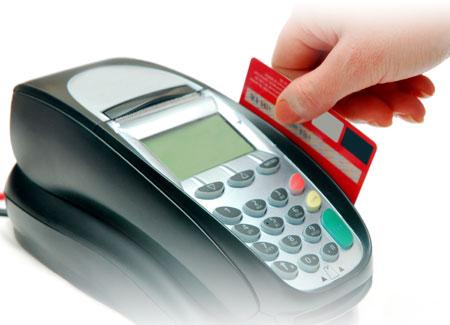 If you’ve been managing a high risk business for some time, you would know very well just how difficult it could be to find a credit card processor that is both willing and able to provide the type of merchant account that you need. Typically, merchants in your situation are forced to just take what is available, even if it is less than optimal — there just seems to be nothing better available. And what is difficult to understand is that a growing volume doesn’t always improve your bargaining position — actually, it may even hurt you, as your processor may raise your risk categorization and may even terminate your service as a result.
If you’ve been managing a high risk business for some time, you would know very well just how difficult it could be to find a credit card processor that is both willing and able to provide the type of merchant account that you need. Typically, merchants in your situation are forced to just take what is available, even if it is less than optimal — there just seems to be nothing better available. And what is difficult to understand is that a growing volume doesn’t always improve your bargaining position — actually, it may even hurt you, as your processor may raise your risk categorization and may even terminate your service as a result.
Now, to an industry outsider, this would make absolutely no sense at all — why would you throw out a perfectly good merchant, simply because she’s starting to make you even more money than before? However, you are not an outsider and experience has taught you that, from your processor’s point of view, as a high risk merchant’s processing volume increases, so does the processor’s liability — should something go wrong with the merchant, the processor stands to lose more money than before. So what should you do? After all, inhibiting growth just so that you stay in your current processor’s favor doesn’t exactly sound like a sound strategy for growing your business. At the same time, you are not all too eager to switch to one of those payment processors operating out of small islands in the middle of nowhere who are promising you all you could possibly want, and cheaply.
Well, the good news is that you don’t have to pursue either strategy. In fact, there are processors operating in perfectly predictable jurisdictions who will be quite happy to work with you and do so on reasonable terms. You would only need to identify these processors correctly and be prepared for a more thorough and rigorous underwriting process. Well, by reading this blog, you are close to complying with the former condition. And with this article, we will help to prepare you for the underwriting review.
What Would You Want in a Merchant Account?
Let’s start by sketching out the merchant account you would like to have. Here are its main characteristics:
- No processing limits — as already noted, you wouldn’t want to have your business’ growth to be restricted by limitations imposed by your service provider.
- Chargeback tolerance — your business is operating in a high risk industry and chargebacks are just a fact of life. You are becoming better at minimizing chargebacks, but a sudden spike is never completely out of the question and you would want to be certain that your processor has your back if that happens.
- Reasonable pricing — you know that expertise comes at a cost, but there are limits to what you believe you should be charged.
- Settlement currency — you would want to be able to choose the type of currency, in which your transactions would be settled.
- Fast funding — you expect daily or, at the least, weekly payouts.
- Bank deposits — you would expect deposits to be made in a bank account of your choice, wherever it may be located.
- Reliable customer support — whenever you may need help, it should be readily available.
Now, merchants would always have other requirements and some of them would be quite important. For example, if a merchant has been placed on the MATCH / TMF list, the processor would have to be able to deal with that. Yet, the seven features I’ve listed above form the core of the merchant account a business would want to have.
Getting through the Application Process
As already mentioned, the merchant account application process with the type of processor you would want to process your payments, will be a more involved affair than what you may be used to. Usually, the paperwork required to initiate the application process includes:
- Application form — a standard form, which you will want to fill out as completely as you can, to avoid having to answer a series of additional questions later.
- Articles of Incorporation / Certificate of Registration or whatever the equivalent document for the formation of your business may be.
- Business license, if required by law.
- Valid government picture ID — in the U.S. a driver’s license is usually provided, elsewhere — a passport is the most common form of identification offered by applicants.
- Utility bill, showing your address — it has to be no older than 30 days from the date on which you signed the application form.
- Personal r??sum?? or CV for the business owner.
- Six most recent processing statements with your current or latest payment processor.
- Three most recent business bank statements.
- Voided check for the account where your money will be deposited or, alternatively, a signed bank letter.
Your processor will usually want to have these documents in English, so be prepared to have them translated, if needed. It is all but guaranteed that, once the underwriting process gets under way, you will be asked to supply some additional documentation or information. For instance, if you have been placed on the MATCH, you will have to provide an explanation, in writing, about the causes for the placement. And, by the way, don’t hide a MATCH placement — it always pops out during the underwriting process, anyway. However, by keeping your prospective processor in the dark about it, you send them in the wrong direction, as the set-up of a merchant account for a business on the MATCH is quite different from the typical one, and everyone ends up wasting their time.
Application processing times can vary, as industry regulations require payment processors to manage some industries more carefully than others. Usually, the process will take within one to two weeks, but in some cases it may take much longer than that. The delay may be caused by a host of reasons, but the major cause is that, in high risk credit card processing, everything is decided on a case-by-case basis. This is why your input during the application review is invaluable. You have to provide all the necessary documents and information, yes, but you also have to make sure you present your business in the best light.
There are many reasons why traditional processors may be unwilling to work with high risk businesses, even if they are perfectly well qualified and this is just the way it is and will not change anytime soon. But there are also processors that have made it their specialty to service exclusively the high risk end of the merchant spectrum and they are always looking for new merchants to take on board. These processors will be more careful when reviewing your application paperwork, will ask more questions, and will in general need your help to a greater degree than their lower risk cousins. However, by working closely with them, you will be helping yourself. As you may have guessed by now, at UniBul we are one of these specialists and will be excited to work with you and set up your high risk merchant account!
What Our Customers Are Saying
UniBul is ranked based on 159 user reviews.
UniBul enables American and international businesses to accept payments for the things they sell on their websites.
![]()

















